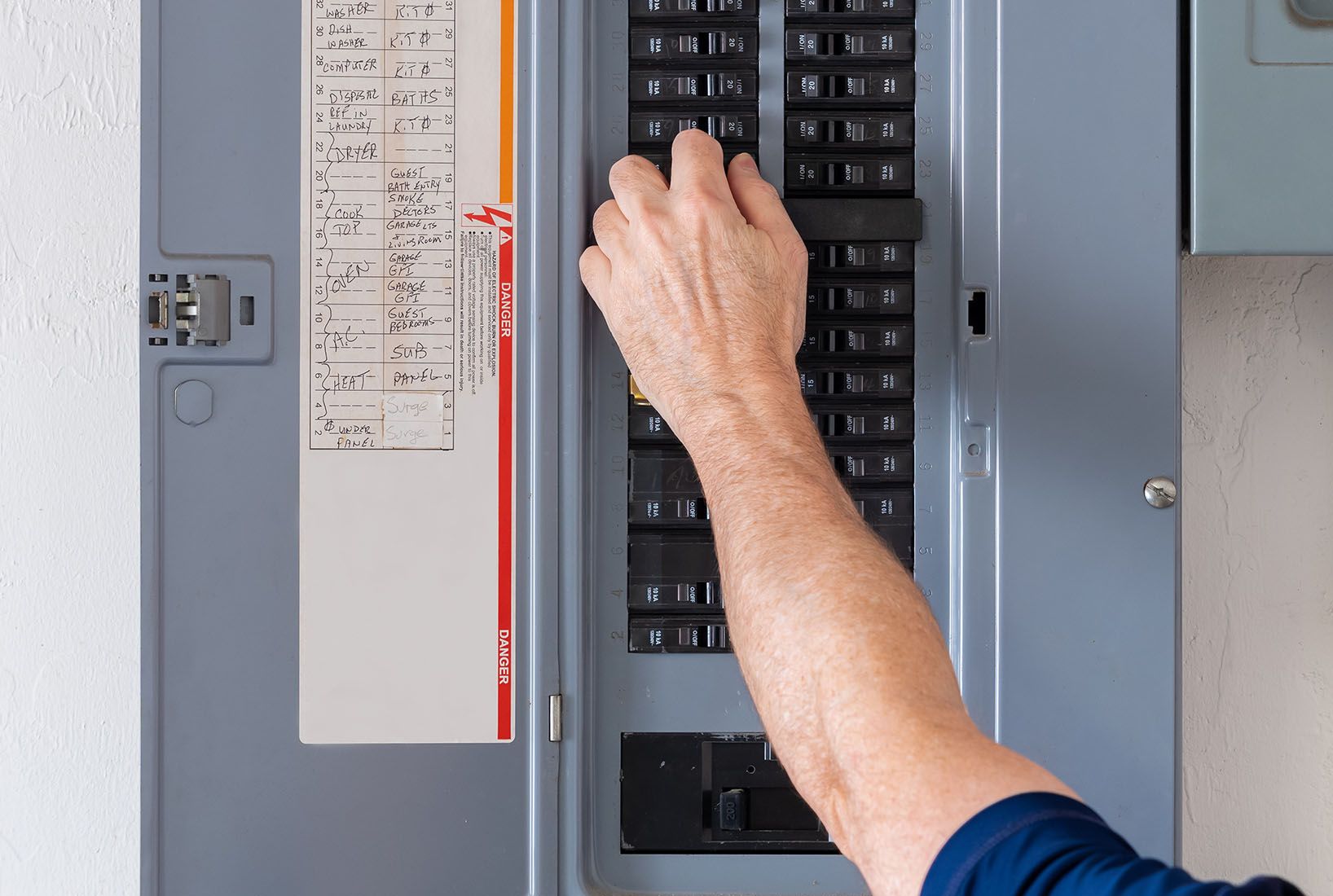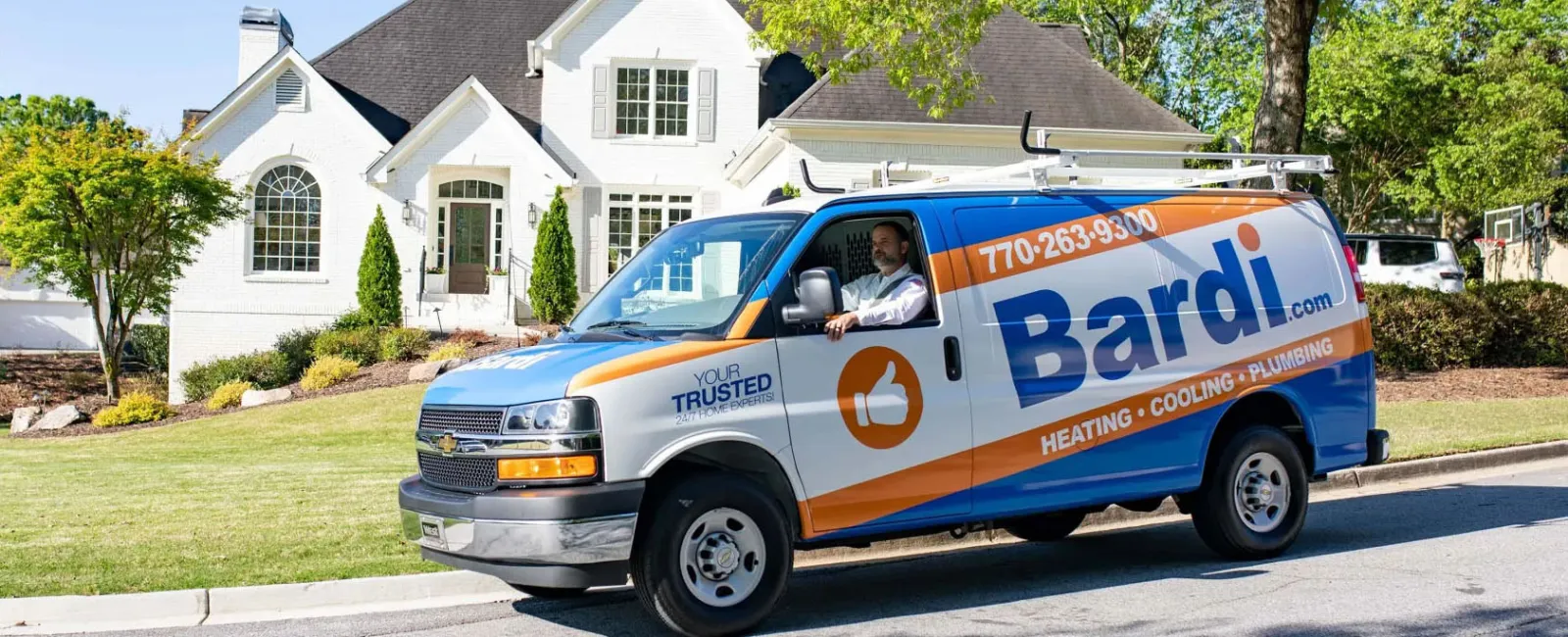August 15, 2024
A Complete Guide to Your Home's Electrical Panel in Atlanta
Meet Your Home's Hidden Safety Gatekeeper

Introduction
Your home's electrical panel is a vital, though often overlooked, component of your household. Acting as the central hub for all your home's electrical circuits, it ensures that power is distributed safely and efficiently to every room. Despite its importance, many homeowners are unfamiliar with how their electrical panel works or how to maintain it. This guide will demystify your home's electrical panel, helping you understand its functions, identify potential issues, and know when to seek professional help.
What is an Electrical Panel?
An electrical panel, also known as a breaker box, load center, service panel, or distribution board, is the control center for your home's electrical system. It connects the external power supply from your utility company to the internal circuits that power your lights, appliances, and devices. The panel houses circuit breakers, which are designed to protect your home by automatically cutting off the flow of electricity if a circuit becomes overloaded or if there's a short circuit.
How Does an Electrical Panel Work?
The primary function of your electrical panel is to distribute electricity throughout your home. Power enters the panel from the utility company through service wires connected to the main breaker. The main breaker controls the flow of electricity to smaller circuit breakers that manage individual circuits within your home.
When a circuit becomes overloaded—meaning it's drawing more power than it's designed to handle—the corresponding breaker will trip, cutting off power to that circuit. This safety feature prevents overheating, which can lead to fires. The panel also manages short circuits, where electrical current takes an unintended path, often due to wiring issues.
In addition to managing power distribution, the electrical panel works with grounding and neutral wires to enhance safety. Grounding wires provide a path for electricity to travel safely into the ground if there's a fault, while neutral wires complete the electrical circuit.
Key Components of an Electrical Panel
Understanding the components inside your electrical panel can help you better maintain it and troubleshoot issues when they arise:
Main Breaker: The main breaker controls the power supply to your entire home. It can shut off electricity to all circuits in the event of an emergency or during maintenance.
Circuit Breakers: These smaller breakers manage individual circuits. They trip to cut off power when a circuit is overloaded or if a short circuit occurs.
Bus Bars: These metal bars distribute electricity from the main breaker to the individual circuit breakers.
Neutral and Ground Bars: The neutral bar connects the neutral wires, returning current to the source, while the ground bar connects the grounding wires, providing a safe path for stray electricity.
Signs It's Time to Upgrade or Repair Your Electrical Panel
Your electrical panel is designed to last, but it's not immune to wear and tear. Here are some signs that your panel might need attention:
Frequent Breaker Trips: If your breakers trip often, it could indicate that your panel is struggling to handle your home's electrical load. This might be a sign that you need an upgrade.
Old or Obsolete Panels: If your home is several decades old and still has its original electrical panel, it might be time for an upgrade. Older panels may not meet current safety standards and might struggle to handle the electrical demands of modern appliances. Some older panels from certain manufacturers are known to have safety issues or have been recalled, making replacement a critical safety measure. Panels such as Federal Pacific, Zinsco, Challenger, I.T.E., Pushmatic, Sylvania and Bulldog have lost their UL listings or safety certifications and are considered unsafe.
Flickering or Dimming Lights: While a single flickering light might just be a sign of a faulty bulb, if multiple lights in your home flicker or dim, especially when using appliances, it could indicate that your electrical panel is struggling to distribute power effectively.
Warm or Discolored Panel Box: If your electrical panel feels warm to the touch, or if you notice any scorch marks or discoloration on the panel box, it's a sign that circuits are overheating. This could be a serious fire hazard, and you should contact a professional electrician immediately to inspect your panel.
Strange Noises or Smells: Buzzing sounds coming from your electrical panel or a burning smell are strong indicators that something is wrong. These symptoms can suggest a malfunction within the panel or wiring issues that need immediate attention.
Age of the Panel: Electrical panels typically last between 20-40 years. If your panel is approaching or has exceeded this age range, it might be time for an upgrade, especially if it's struggling with modern electrical demands.
Reliance on Extension Cords: If you're using extension cords frequently, it may mean your home needs more circuits, which could require an upgraded panel.
Options for Upgrading or Replacing Your Electrical Panel
Upgrading or replacing your electrical panel can involve different levels of work, depending on your home's needs:
Heavy Up: A heavy up is an upgrade to your existing panel to increase its capacity without a full replacement. This might involve increasing the amperage (e.g., from 100-amp to 200-amp service) to better handle your home's electrical load. This option is often chosen when the panel itself is still in good condition but the home's power needs have outgrown its capacity.
Complete Replacement: In some cases, especially with older or recalled panels, a complete replacement might be necessary. This involves installing a new, modern panel that meets current safety standards and can handle the electrical demands of modern appliances and devices.
100-Amp vs. 200-Amp Panels: Most older homes were built with 100-amp panels, which were sufficient for the electrical needs of the time. However, modern homes often require 200-amp panels to safely handle today's higher electrical demands. Upgrading to a 200-amp panel can provide more circuits, reduce the likelihood of overloads, and prepare your home for future electrical upgrades like electric vehicle chargers or new HVAC systems.
The Importance of Using a Professional for Electrical Panel Work
Working on an electrical panel is complex and dangerous. Electrical work requires specialized knowledge and skills to ensure safety and compliance with local codes. Here's why you should always hire a licensed electrician for panel work:
Safety: Electrical panels carry high voltage, and mistakes can lead to serious injury or even death. Professionals have the training and tools to work safely.
Code Compliance: Electrical work must meet local building codes. Professionals ensure that your panel meets these requirements, which is critical for your safety and when selling your home.
Proper Installation: Incorrect installation can lead to malfunctioning breakers, electrical fires, or other hazards. Professionals guarantee that everything is installed correctly and functions as it should.
Insurance Coverage: Many insurance policies require that electrical work be done by licensed professionals. If you DIY an electrical panel and something goes wrong, your insurance may not cover the damage.
Warranties: Most electrical panel manufacturers offer warranties that are only valid if the installation is performed by a licensed electrician. Additionally, a professional installer often provides a warranty on workmanship, covering future labor costs if issues arise. This dual warranty protection gives you peace of mind knowing that both the equipment and the installation are backed by guarantees.
Surge Protection: An Essential Upgrade
In today's world, homes are filled with sensitive electronics that are vulnerable to power surges. These surges can come from lightning strikes, but more commonly, they're caused by everyday occurrences like cycling HVAC systems or large appliances. The importance of surge protection was starkly illustrated in December 2022 when a power surge in East Cobb, Georgia, caused thousands of dollars in damage to dozens of homes. Homeowners described hearing sounds "like firecrackers" as the surge fried lighting systems, tripped breakers, and damaged costly appliances like HVAC units and furnaces.
Installing a whole-home surge protector in your electrical panel is an excellent way to protect your devices and appliances from such damage. This device intercepts surges before they can reach your circuits, preserving the lifespan of your electronics and preventing costly repairs. Given the potential for catastrophic damage, as seen in Cobb County, investing in surge protection is a crucial step in safeguarding your home.
Tax Credits for Electrical Panel Upgrades
To encourage homeowners to modernize their electrical systems, the federal government offers tax credits for electrical panel upgrades. Homeowners can claim 30% of the project costs, up to $600, as a federal tax credit. This financial incentive makes upgrading your electric panel an even more attractive option, especially if you're planning to install energy-efficient upgrades like solar panels, heat pumps or electric vehicle chargers.
Smart Electrical Panels: A Brief Overview
Smart electrical panels are the next generation of home energy management. Unlike traditional panels, these advanced systems allow homeowners to monitor and control their energy usage in real-time, often via smartphone apps. They offer features such as automated load management, remote circuit control, and seamless integration with renewable energy sources like solar panels and battery storage. Additionally, smart panels enhance safety with features like arc fault detection and self-diagnostics. While they come with a higher upfront cost, the long-term energy savings and increased control make smart panels a worthwhile investment for modern homes.
Electrical Panel and Fire Safety
According to the U.S. Fire Administration, nearly 13% of residential fires and 19% of non-residential fires are due to faulty equipment and electrical malfunctions. Over time, normal wear and tear on your electrical panel, coupled with the increasing demands of modern appliances, can strain your panel and result in equipment malfunctions, electrical fires, and significant safety hazards. Regular inspections and timely upgrades can help mitigate these risks.
Conclusion
Your home's electrical panel is more than just a metal box in your basement or garage—it's the heart of your home's electrical system. Understanding how it works, recognizing the signs of potential issues, and knowing your options for upgrades and maintenance are crucial for ensuring your home's safety and efficiency.
Why Choose Bardi for Your Electrical Panel Needs
At Bardi, we pride ourselves on staying current with the latest industry practices and standards to ensure your electrical panel meets all code requirements. Our team of skilled electricians is dedicated to providing comprehensive solutions tailored to your home's unique needs, whether it's an upgrade, installation, or repair.
Our Electrical Panel Services
Electrical Panel Upgrades: We carefully assess your current system and recommend the best course of action, whether that's installing new circuit breakers, adding a sub-panel, or replacing your entire panel. We also specialize in upgrades that support modern amenities like electric vehicle chargers, whole-home generators, and home additions.
Electrical Panel Installations: Whether you're building a new home or renovating an existing one, we install electrical panels that offer reliable, energy-efficient performance, ensuring your electrical system is equipped to handle your home's demands.
Electrical Panel Repairs: From fixing damaged wiring and replacing circuit breakers to tightening connections, our expert technicians handle all necessary repairs to keep your panel functioning safely and efficiently.
Emergency Repairs: Electrical issues can arise at any time, which is why we offer 24/7 emergency services. Our team is ready to provide immediate assistance to resolve any urgent electrical panel problems you may encounter.
Schedule Your FREE Consultation
Understanding the importance of a safe and efficient electrical panel, we offer a free consultation to assess your current system. One of our licensed electricians will discuss your needs, answer your questions, and help you determine the best solution for your home. Whether you need an upgrade, repair, or a full panel replacement, Bardi is here to ensure your home's electrical system is in top condition.
Contact us today to schedule your free electrical panel consultation and discover how we can help keep your home safe and powered for years to come.






